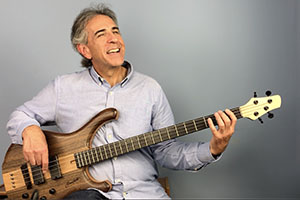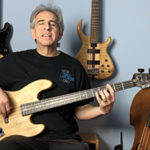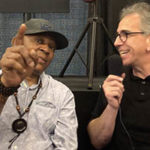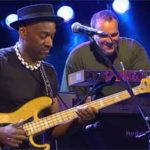Thoughts on using your ears to their full potential
By Jon Liebman
Week of September 14, 2020
How many tunes do you know? It doesn’t matter if they’re jazz tunes, pop tunes, or tunes you need to play at a wedding. Whatever your thing is, how many tunes are you ready to play right now?
And what do you do if someone calls a tune you don’t know? Do you panic?
I did a great interview with bassist Tony Cimorosi, which we published this week on FBPO. He knows all kinds of tunes in lots of styles, any one of which he can play instantly. It’s what he does when he doesn’t know a tune that perked up my ears.
“Music is a listening art,” Tony says, “so with music, hearing is knowledge. I always tell students, ‘use your ears as much as possible.’”
It’s always advisable to go to the gig armed with your “arsenal” of tunes, ready for anything. “I know probably thousands of tunes, lots of standards and stuff like that,” says Tony. “If I don’t know the tune, I’ll say, ‘Hey, why don’t you just kind of play through it a little bit and I’ll listen to you?’ Usually I get it the first time and then take it from there.”
That kind of skill doesn’t just happen. It takes years of practice and lots of ear training. While it’s helpful to have a good understanding of how progressions generally move, the biggest thing required, more than anything else, is listening. Hyper-focused listening.
“Do I have to tell you that the bass player has to have the best ears in the band?” Tony asked me. “Always try to respond to what you’re hearing.”
You need to be prepared to play whatever you’re called upon to play, regardless of the musical situation. Tony shared some advice he once received from Eddie Gomez, who recommended he “Learn a tune a day,” which, at the time, felt rather daunting to Tony. “That was pretty heavy, you know?”
When you don’t know a tune, it can be very uncomfortable, especially if you can’t pick it up quickly. The best thing you can do, in addition to learning lots of tunes, is to put your listening skills to work. The more you understand the kinds of road maps chord progressions are likely to take, the better equipped you’ll be to react to what you’re hearing and lay down the bass line the song requires.
“Just always work on listening and responding to the music,” Tony advises. “Being able to respond, that’s what really makes a great bass player.”
Have a thought on the subject? Leave a comment below and let me know what you think. In the meantime, you can check out my interview with Tony here.






Tony Cimorosi hit the nail on the head. However, I feel that not everyone has an innate “ear”. I think it comes easier for certain people than for others. I come from a long line of musicians and singers in my family, and my Mom, who was an Opera singer and classically trained pianist, had perfect pitch. She did have years of ear training, but she was definitely what we’d call “a natural”. I possess relative pitch, and I’m sure if I had some formal ear training, I could develop perfect pitch. That said, I find it easier to “be all ears” and figure out most Rock, Pop, and Blues songs on the fly if someone calls out something I’ve never played before. I also think that some contributing factors to being able to do that are, having years of experience playing different genres of music, and also perhaps having heard a lot of those songs growing up. Also, let’s take for example a Beatles song. I’m a huge, huge Beatles fan, and I know how to play a lot of their songs, and even if I don’t know how to play a certain Beatles song that perhaps someone I’m sitting in with calls out, I’ve definitely heard the song a million times, so I already have a decent amount of knowledge in my brain as to how the bass line goes, for the most part. So, between that knowledge, and already knowing how to effectively cop the “McCartney feel” of how he plays and what he sounds like, I can, at the very least, get through a song, or convincingly fake my way through it. And remember, we are our own worst critics! Lol! Sometimes when I’ve been in this position of having to fake my way through some tunes on stage, I sometimes feel like I didn’t do such a hot job. But, after the show, I’d have people coming up to me praising my work. So basically, like Tony was saying, listen to, and learn music in many different genres over time. And don’t beat yourself up over it, because if you know the basics of song structure in various genres, and you’re familiar with the feel of some of the most popular bass players, or the feel of the bass playing in those various genres, most audiences will never know that you didn’t know it! ????